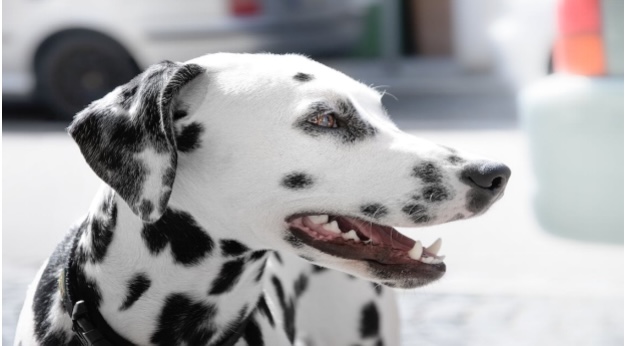It’s rare that people think about their dog’s dental health when taking care of them. But, it can get more than a little embarrassing to have your dog’s breath smelling stale. Besides, it can take the fun out of cuddling with your pooch when you hold them up close!
The main reason to remedy your dog’s bad breath is that it’s a sign of poor oral hygiene. This can lead to various dental problems for your dog in the long run. So, if you don’t understand what’s causing it, we have a few points for you. We’ll also talk about how you can prevent and treat it for better dental hygiene for dogs.
Causes of Bad Breath in Dogs
Bad breath is common among dogs in their formative years. So, if you have a pup, there’s a good chance they don’t have the freshest breath. People often use reputed veterinary dental products to help their pups overcome this. These products can tackle the root cause of this problem and provide fresh breath for dogs.
But, it’s important to note that you would first need to discover what’s causing stale breath in your dog. It’s easy to ignore your dog’s breath now and then. But, this isn’t the wisest course of action considering it may be because of an underlying issue.
Let’s talk about the most common causes of bad breath among dogs.
Poor Dental Hygiene or Gum Disease
Good dental hygiene is a pet essential if you want to keep them healthy. Periodontal disease can also cause halitosis among dogs. Their dental issues are pretty like those of humans in many ways. The build-up of dog plaque is a leading reason behind bad breath.
Plaque build-up often occurs if you don’t brush your dog’s teeth often enough. It also happens if your dog isn’t a chewer. This build-up may well cause periodontal disease over time if left unchecked. Also, it’s important to note that too much build-up can push their gums away from their teeth.
This gives bacteria a larger area in their mouth to spread themselves in.
Kidney or Liver Disease
Another common cause of ‘dog breath’ is kidney disease. Often, if your dog has been drinking urine, its breath can smell like it. You would need to look into this if you suspect it’s the case. But, if you’re sure they’re not, then there may be a more serious underlying cause.
A breath that smells like urine could be indicative of kidney disease. If their kidneys aren’t working, they aren’t processing waste materials well enough. This can cause an excessive build-up of waste in your dog’s kidneys which leads to bad breath.
Sometimes, bad breath could even cause liver disease among dogs. If your pooch has yellowing skin and weight loss alongside bad breath, this may be the case. Often, your dog may also be vomiting excessively if they have liver disease. It’s better to get it checked out sooner than later if this is indeed the case.
Diabetes
It may sound unusual, but dogs often suffer from diabetes. This condition, if left untreated, can cause your dog’s breath to smell like acetone. In some cases, untreated diabetes can also give their breath a slightly fruity smell.
This happens because their body begins breaking down fats creating ketones. You may be able to tell they have diabetes if they lose weight rapidly, grow thirsty or urinate often.
How to Ensure Fresh Breath for Dogs

Now that you know the common causes, let’s talk about how to treat bad breath in your dog.
Use Dental Tools and Products
A great way to treat and breathe in dogs is to use dental tools for the same. Veterinary dental instruments are available to help you cure your dog’s periodontal disease. These instruments allow veterinarians to apply barrier sealants to your dog’s teeth.
The barrier sealants kill bacteria and stop plaque formation on their teeth. In doing so, they also reduce the risk of gum disease for your dog. These bio-dental products are applied by veterinarians and you shouldn’t use them.
If you want a home remedy, you could use plaque spray for dogs that reduce plaque formation. The best-quality sprays also reduce the formation of plaque in the future. But, you would need a good quality dog plaque spray if you want to keep your pet safe and healthy.
You could even use a dog plaque water additive to slowly but surely reduce the plaque on their teeth. Whatever you do, don’t assume the responsibility of a vet in keeping your dog’s teeth healthy. Don’t use veterinary dental tools and leave them to the professionals instead.
Brush Their Teeth Often
This is one of the easiest ways to prevent bad breath among dogs. Remember to brush their teeth every day or every week – depending on their diet. If they eat unhealthy, sugar-rich foods, they may need more regular brushing. Make sure you use canine toothbrushes and toothpaste while brushing your teeth.
You could even give your dog dental chews to keep their teeth naturally clean and healthy. This kind of fresh breath oral care is easier to use since dogs generally love dental chews.
Let Them Follow a Healthy Diet
The role of a diet in fresh breath for dogs cannot be overstated. There are special diets for dogs that help with plaque prevention. These diets consist of foods that scrape along their teeth. This reduces the build-up of plaque on their teeth as they chew their food.
A healthy diet will prevent diseases and disorders like diabetes in your dog. This in turn will reduce their chances of having bad breath. You can ask your veterinarian for a balanced diet plan for your dog.
How to Prevent Bad Breath in Your Dog
The tips for treating bad breath in dogs can work for prevention as well. Brushing their teeth often is one such example. This will prevent dental issues from showing up as your pup is growing. But, it’s important to remember that some dog breeds are more prone to dental hygiene problems.
It’s better to speak to your vet for dental hygiene suggestions when your dog is young. Small dogs are susceptible to dental problems as their teeth are close together. If you have a small dog, give them chew toys from a young age to prevent plaque formation.
Conclusion
The treatment for bad breath in dogs can be pretty simple depending on the underlying cause. But, in some cases, it may be cause for concern if you see other symptoms in your dog. For instance, if they lose weight quickly, they might have diabetes. You know your dog the best so don’t ignore the signs if you sense they’re in poor health.
Get in touch with your vet and get to the root cause of their bad breath as soon as you can. If it’s a more basic issue, then our tips will help you treat bad breath in your dog.
FAQs
Here are some FAQs on bad breath among dogs.
Q – Is it easy to treat bad breath in dogs?
- The ease of treating bad breath in dogs depends on what’s causing it in the first place. If the underlying cause is an organ disease, then it can be challenging to treat halitosis in dogs. But, if it’s because of poor dental hygiene, then it can be easier to treat than you’d expect.
Q – Can I use home remedies to treat bad breath in my dog?
- Again, this depends on the underlying cause of your dog’s bad breath. If it’s being caused by a poor diet, then improving their diet can make a big difference. Home remedies can also work for basic dental hygiene issues.
But, make sure to check with your vet before you administer any home remedies.



